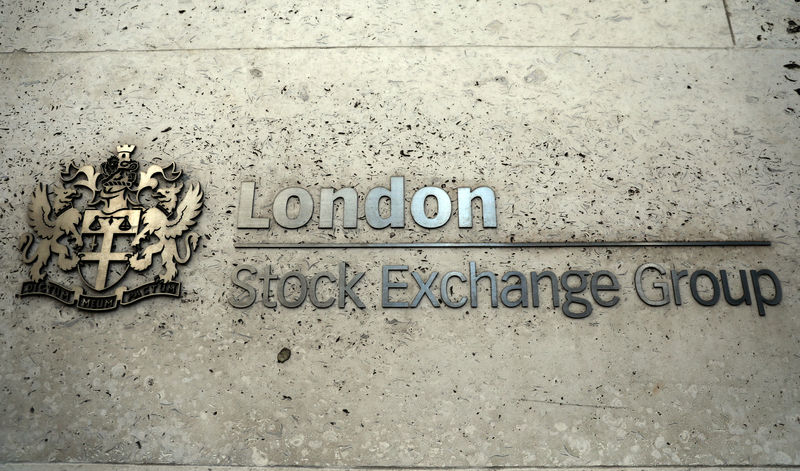Proactive Investors -
- FTSE 100 up 11 points to 8,205
- Thames Water bills to rise
- UK economy grows more than expected
Water bill price hikes a ‘bitter pill’ says Labour
Labour chancellor Rachel Reeves has called the planned 21% increase in water bills by 2030 a “bitter pill” for Brits to swallow.
Under draft proposals released today by regulator Ofwat, water firms will be allowed to hike bills by an average of £19 per year, or £94 over five years to 2030.
“It’s clearly a bitter pill for people who are seeing today’s announcements about higher water bills,” said Reeves.
“This reflects 14 years of failure from the Conservatives to drive investment to reduce pollution, and to ensure that families are not struggling the way that they have been with the cost-of-living crisis.”
While it comes at a time of public outrage over escalating sewage spills and water contamination incidents, the price hikes fall significantly short of what the water companies wanted.
Thames Water, for instance, will only be allowed to raise water prices by £99 over the next five years, barely half of the £191 it was seeking.
In a sign that this compromise will satisfy no one, campaigners and the Liberal Democrats have robustly rubbished the price hikes as unfair, disgraceful and insulting.
Industry group Water UK was equally outraged for the opposite reason, calling the decision to not meet water companies’ demands “an unrealistic and unfair decision from Ofwat, and our economy and environment will pay the price”.
Ofwat in water firm face-off
Water regulator Ofwat is preparing for a confrontation with Britain’s water executives over the austere draft determination proposals released today.
In its five-year review of consumer bill prices and investment spending, Ofwat has allowed UK water companies to increase bills by only 21% by 2030.
While this is positive news for consumers, it significantly falls short of the water firms' expectations, raising concerns about a potential shortfall in essential infrastructure investment.
David Henderson, chief executive of industry group Water UK, told the BBC that Ofwat has “got this wrong.”
"This is an unrealistic and unfair decision from Ofwat, and our economy and environment will pay the price," he added.
Another spokesperson for Water UK described it as "the biggest ever cut in investment," contrasting sharply with Ofwat boss David Black’s assertion that the plans represent the “biggest ever” investment in the water sector.
Pound at four-month high
A spate of bullish economic figures has pushed the pound to a four-month high.
Gross domestic product figures show that Labour has inherited an economy growing faster than expected, while construction output also surprised to the upside.
The pound rallied in response, as the markets began to wonder if the Bank of England intends to delay anticipated interest rate cuts.
“After all, cutting rates is something a central bank does to stimulate a lackluster economy, not grease the wheels for one already moving ahead,” stated Russ Mould, investment director at AJ Bell.
Mould added: “That said, momentum could easily lose pace, particularly if the jobs market weakens and sticky inflation causes consumers to stay cautious on spending.”
IG data shows that rate cut expectations have been trimmed slightly, although a 25-basis-point move lower is still widely favoured in September.
Hargreaves warns of diluted investor rights under new listing regime
The Financial Conduct Authority today announced an overhaul of the UK listing regime, aimed at making London’s struggling capital markets a more attractive place for global businesses.
But Tom Lee, head of trading proposition at Hargreaves Lansdown (LON:HRGV), warned that certain measures being implemented by the FCA could harm shareholders.
While “a successful listings regime which supports our home market is essential,” Lee said that “making the UK an attractive place to list has to be balanced with rights for shareholders and ensuring that the quality of the market is not diluted.”
Under the new listing rules coming into effect at the end of the month, listed companies will not require shareholder approval on significant or related-party transactions. They will also have more flexibility around enhanced voting rights.
“We have been concerned that the plan to remove shareholder votes on significant and related-party transactions would dilute investors’ rights,” said Lee. “We will watch closely as these new rules embed.”
On the bright side, Lee noted that retail access to primary and secondary listings will be enhanced under the new rules.
“The demand from retail investors to buy into the equities market is there, and regulatory change should support this demand.
“Boosting retail investment on the stock exchange will have wider market benefits, providing depth and liquidity, as well as boosting interest in investment with the wider public, unlocking further capital for UK-listed companies.”
